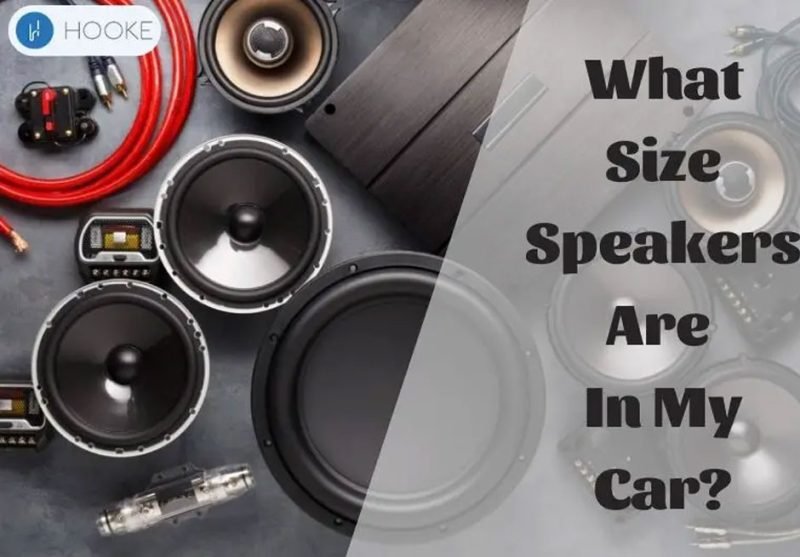
If you’re a car owner, you may have wondered about the size of the speakers in your car. Knowing the size and type of speakers can help you repair or upgrade them to ensure optimal performance with your car’s audio system. In this post, we’ll discuss the common question: “What size speakers are in my car?”
Determining Your Car’s Speaker Size and Type
The answer to this question depends on your car’s make, model, and the audio system you have installed. To determine your car’s speaker size and type, you can follow these steps:
- Check your car’s manual: Your car’s manual may have information on the type and size of speakers installed in your car.
- Measure the speaker: If you can access the speaker, you can measure the diameter of the speaker cone to determine its size.
- Check online databases: You can use online databases to find information on the speaker size and type based on your car’s make and model.
Common Car Speaker Sizes
Here are some common car speaker sizes you may encounter:
3.5-Inch Speakers
3.5-inch speakers are considered small and are typically found in entry-level or stock car audio systems. They can produce decent audio quality for low to mid-range frequencies. However, if you want a more immersive audio experience, you may want to consider larger speakers or a more powerful speaker system.
4-Inch Speakers
4-inch speakers are an improvement over 3.5-inch speakers and can make better sound with more power. They are suitable for mid-range and higher frequencies, such as vocals and instruments, and can provide a good balance of clarity and power.
4×6 Speakers
4×6 speakers are a popular size for car audio systems, especially in older cars that were designed to fit this size of speaker. They are typically considered mid-sized speakers and can provide a good balance of power and clarity for mid-range and higher frequencies.
5.25-Inch Speakers
5.25-inch speakers can be a good balance between price and car stereo quality. They have better midbass response than smaller speakers, which can improve your audio system. They typically have an average range of 25W to 55W, which can be sufficient for many car audio systems.
5.7-Inch Speakers
5.7-inch speakers, also known as 5×7 or 6×8 speakers, are slightly bigger than 5.25-inch speakers and can produce a fuller sound with better low-frequency feedback. They can handle more power than 5.25-inch speakers and can deliver increased volume and dynamic range with a matching amplifier or head unit.
6-Inch Speakers
6-inch speakers can provide a fuller and more robust sound than 5.25-inch speakers with better midrange response. They can handle 50W to 100W RMS with an amp or head unit, increasing volume and dynamic range.
6.5-Inch Speakers
6.5-inch speakers offer a nice balance of audio quality and installation convenience. They are slightly larger than 6-inch speakers and have greater low-frequency response. They can be coaxial, component, or midrange/midbass-only like other speaker sizes.
Choosing Replacement Speakers
When choosing replacement speakers, make sure they are compatible with your car’s audio system and can be properly installed. You may also need to consider the cost of changing your car’s factory speaker mounts or door panels to accommodate larger speakers.
In conclusion, understanding the size and type of speakers in your car can help you improve your audio system’s performance. By following the steps above and considering the common car speaker sizes, you can make an informed decision on upgrading or replacing your car’s speakers. However, it’s important to note that simply upgrading your car’s speakers may not necessarily result in a significant improvement in audio quality. The overall audio performance of your car’s audio system depends on various factors such as the amplifier, head unit, and wiring.
It’s also important to ensure that the speakers are placed correctly to avoid any damage to your car or music equipment. If you’re unsure about installing or replacing your car’s speakers, it’s recommended to seek professional help to avoid any potential damage to your car’s audio system.
In summary, knowing the size and type of speakers in your car is essential for improving your car’s audio system. By following the steps outlined above and considering the common car speaker sizes, you can make an informed decision on upgrading or replacing your car’s speakers. Always remember to seek professional help if you’re unsure about installing or replacing your car’s speakers to avoid any potential damage.

